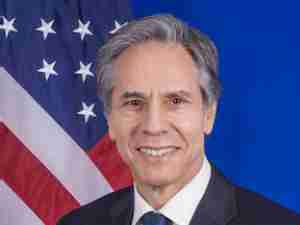Petronas Deals Fresh Blow as World Exits Canada’s Energy Patch
By: | Jul 26 2017 at 12:01 AM | International Trade
Petroliam Nasional Bhd.’s decision to back out of a giant gas-export project on Canada’s Pacific Coast is the latest hit to the country’s energy sector—and to Prime Minister Justin Trudeau’s plan of balancing energy exports and climate action.
The Malaysian state-run oil and natural gas producer cited an “extremely challenging environment” of low prices and other changes in declining to proceed with the liquefied natural gas project, which Trudeau approved last year after sweeping to power on pro-environment pledges.
Petronas’s cancellation follows a string of exits from Canada’s oil patch as global producers focus on lower-cost areas. So far this year, ConocoPhillips and Royal Dutch Shell Plc have sold more than $20 billion in oil-sands assets to local producers Cenovus Energy Inc. and Canadian Natural Resources Ltd.
“It’s another negative data point for doing business in Canada,” said Swanzy Quarshie, who manages about C$100 million ($80 million) in assets at Sentry Investments Inc. in Toronto. “The biggest concern is the perception that investors are not seeking Canada as an investment opportunity, and what does that do to other investment opportunities?”
Canadian energy projects face tightening regulations, years-long approval processes, environmental opposition and legal uncertainty, particularly around the rights of indigenous people. Trudeau is trying to balance expanding energy exports while cutting Canada’s greenhouse-gas emissions. LNG is generally less controversial than crude oil, but still faced similar hurdles. The $27 billion Petronas proposal was already weighing a different site to quell opposition. That wasn’t the only challenge, though.
‘Bloated Cost’
“More specifically on this project, the challenge was the bloated cost,” Robert Norfleet, managing director at Alembic Global Advisors in New York, said by phone Tuesday. “The economics just did not seem to justify bringing that into the market.”
In the long run, only a fraction of proposed North American LNG terminals will be built, mostly in the U.S., which has more LNG infrastructure than Canada, said Muhammed Ghulam, associate of equity research at Raymond James in Houston. “There is simply too much LNG export capacity planned in North America and cancellations, especially of Canadian projects, are likely to continue,” Ghulam said.
In the short term, the divestiture may help boost gas prices because Petronas may slow the development of its production assets in Canada, Sentry’s Quarshie said. The company also may sell those assets eventually, she said.
“The most likely outcome is that they eventually sell down out of their upstream assets because their reason for acquiring these assets in the first place was because of this LNG project that they were going after.”
NDP Government
While Petronas cited changing market conditions, their withdrawal will be seen in a political lens in Canada. They announced their decision a week after John Horgan became premier of British Columbia, the country’s westernmost province that is both the birthplace of Greenpeace and the nearest gateway for landlocked Alberta’s oil and gas. Horgan leads a precarious, razor-thin coalition government of left-leaning New Democrats bolstered by three Green Party lawmakers. While they are divided on LNG, their alliance toppled Christy Clark, a staunch LNG advocate.
Horgan’s government, however, downplayed the impact of Petronas’ decision on Canada’s LNG sector. “This isn’t about any specific detail with this project. It’s about global market pricing,” said Michelle Mungall, the province’s minister of energy, mines and petroleum resources. She planned to immediately call other stakeholders in the LNG industry, including China’s CNOOC Ltd.-backed Aurora LNG, to let them know that the “NDP will be working with them.”
Horgan’s narrow grip on power could soon trigger another election, but LNG was a legacy issue for Clark and her Liberal Party, said Mario Canseco, vice president of polling firm Insights West. “They will sell this as something the NDP triggered,” he said of Clark. “LNG was always seen as one of the legacy projects, and it’s not going to bode well for her in the end.”
Alberta Impact
Trudeau’s government, too, distanced itself from the collapse of the first major project it approved. “Today’s announcement concerning the Pacific NorthWest LNG project was a business decision made by the proponent,” Alexandre Deslongchamps, a spokesman for Natural Resources Minister Jim Carr, said in an email Tuesday. “We will continue to deliver for the energy sector.”
The decision is nonetheless the latest blow to Alberta, whose oil sands are the world’s third-largest proven oil reserve while also higher-cost and higher-emitting than competitors.
“The disturbing part of this is that it’s not the first project and the first international major company to leave Canada,” Murray Mullen, chief executive officer of Mullen Group Ltd., an oilfield services and trucking company based in Okotoks, Alberta, said in an interview on Bloomberg Markets Canada.
The project was bogged down by regulatory, inter-provincial, environmental and indigenous issues that are adding up to discourage development, he said.
“When you combine all of those together and you can’t get consensus, then nothing happens,” Mullen said. “I just worry that Canadians are missing the boat because we’re trying to over-analyze things.”










